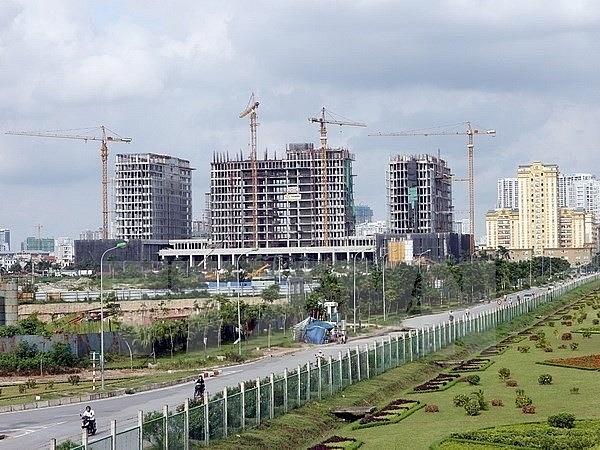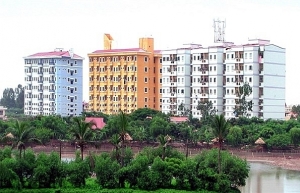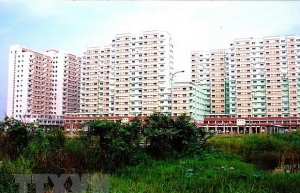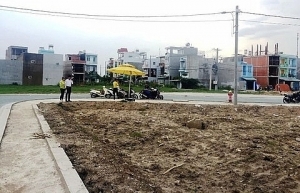Fixing land use rights for foreigners
In order to ensure the consistency and synchronisation of the legal system, experts say it is necessary to amend the current Law on Land, while adding that foreign individuals who are allowed to own houses in Vietnam according to the Law on Housing can also have ownership as set out in the Law on Land.
 |
| Fixing land use rights for foreigners, illustration photo VNA |
Last week, the amended draft of the Law on Land was put onto the Vietnamese government’s agenda in a special session on law-making chaired by Prime Minister Pham Minh Chinh.
One of the issues that government members are interested in discussing in terms of this issue is the rights of foreigners related to land in Vietnam.
Specifically, Article 159 of the Law on Housing stipulates that foreign organisations and individuals are among the those currently entitled to own houses in Vietnam. Clause 2, Article 14 of the Law on Real Estate Business stipulates that overseas Vietnamese, foreign organisations, and also individuals may rent all types of real estate properties for their own use, as well as purchase or rent houses in accordance with the Law on Housing.
However, Article 5 of the current Law on Land only stipulates that foreign organisations are allowed to implement housing projects in Vietnam, with no mention of foreign individuals being allowed to own residential land in Vietnam.
Nguyen Van Dinh, an independent expert in construction investment and real estate business explained, “Vietnamese people who purchase houses from foreign individuals are subject to the exact same legal status as those foreign people – only having the right to own houses, but not to the land use rights – and this is a situation that is illogical.”
On the other hand, in a proposal to compile the revised Law on Housing, which is expected to be passed at around the same time as the revised Law on Land, the Ministry of Construction proposed to focus on solving several major groups of policies related to housing ownership.
“Continuing the policy of encouraging and creating favourable conditions for foreign individuals and organisations to buy and own houses in Vietnam, in accordance with international practices, will attract investment while also ensuring security and national defence for the country,” the amended law proposal had noted.
But the policy of encouraging individuals from other countries to purchase houses will not be fully implemented without first solving the issue of ownership.
“To solve this problem, the amended Law on Land is necessary to recognise the land use rights of foreign individuals,” Dinh commented.
After being examined by the National Assembly Economic Committee, and after a range of opinions have been collected from the National Assembly Standing Committee delegates, the amended draft is expected to be submitted to the National Assembly in October during its fourth session.
Duong Thuy Dung Executive director CBRE Vietnam In most developing markets, foreign ownership is heavily restricted. Similar to Vietnam, Thailand does not allow foreign citizens to directly purchase land with certain exceptions. Foreigners are only permitted to own condominiums, capped by a certain percentage of the whole project’s scale stipulated by law. This is seen as common practice in emerging markets to manage foreign capital flows into the property market. In contrast, in some developed nations such as North America, the EU, Japan, and South Korea, governments could confidently let foreigners directly own property. We see that most concerns are linked to conflicts among a number of other laws. This may lead to the questionable issue of whether Vietnamese citizens have relevant land-use rights (LURs) when buying property from foreigners who are not granted any such rights in Vietnam. There is no clearly stated law regarding LUR ownership for local buyers in this case; however, the locals still reserve certain rights to some extent, based on current law. Under the Law on Land, Article 126 regulates those who buy houses associated with LUR may use land for the long term. In addition, under Decree No.99/2015/ND-CP on guidelines for the Law on Housing, Vietnamese citizens are entitled to long-term ownership of the house as the foreign organisation/individual sells the house before the expiration of the ownership period. Relaxed rules will help attract more investment but could possibly raise concerns over land-related misconduct, increased market volatility, or inflated property prices. Due to the protection of national security, the government has made it harder for foreigners to obtain LUR certificates. |
 | Issuance of land use certificates to be solved Authorities in Hanoi are committed to solving problems regarding the granting of land use rights and house ownership certificates to people who bought apartments in illegal projects. |
 | Vietnam needs to complete land market: experts Vietnam was urged to complete the land market to meet requirements and ensure development, experts said. |
 | HCM City collects $712.5 million in land-use change fees HCM City collected fees of more than VND16.49 trillion (over US$712.5 million) last year for changing land-use purposes, according to the city Registration Office for Land Use Rights. |
What the stars mean:
★ Poor ★ ★ Promising ★★★ Good ★★★★ Very good ★★★★★ Exceptional
Related Contents
Latest News
More News
- VNPAY and NAPAS deepen cooperation on digital payments (February 11, 2026 | 18:21)
- Vietnam financial markets on the rise amid tailwinds (February 11, 2026 | 11:41)
- New tax incentives to benefit startups and SMEs (February 09, 2026 | 17:27)
- VIFC launches aviation finance hub to tap regional market growth (February 06, 2026 | 13:27)
- Vietnam records solid FDI performance in January (February 05, 2026 | 17:11)
- Manufacturing growth remains solid in early 2026 (February 02, 2026 | 15:28)
- EU and Vietnam elevate relations to a comprehensive strategic partnership (January 29, 2026 | 15:22)
- Vietnam to lead trade growth in ASEAN (January 29, 2026 | 15:08)
- Japanese business outlook in Vietnam turns more optimistic (January 28, 2026 | 09:54)
- Foreign leaders extend congratulations to Party General Secretary To Lam (January 25, 2026 | 10:01)


 Tag:
Tag:




















 Mobile Version
Mobile Version